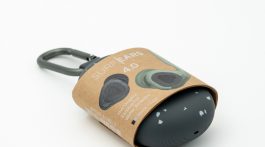Original Article Sourced from Brian Walker The Retail Doctor Group
With consumers now buying into brand experiences rather than individual retail channels, consumer trust has emerged as the currency you cannot trade. It is amazing that in a world of transactions and online noise that “trust” as a keenly preserved brand value is not cherished by more retailers in their offer, message and most importantly their customer experience.
The strength of this currency has increased as fast as the world economy has stumbled, and it falls upon brands to create their own stable Trust Economies that will weather the rise and fall of the external local and global movements around them. So just why has trust become so important to consumers and how do you, as a brand, build your own Trust Economy to secure loyal and profitable consumer relationships and advocates?
Consumers are literally ‘consuming’ all channels, resulting in the erosion of universally valid rules, norms and values in society and creating a higher level of social diversification than ever before. Because of this, they have started to crave a sense of identity, continuity and community in their lives, which is being satisfied in part by trusted retail brands.
We have found over the years and through various research studies within our own insights division and global Ebeltoft Group partners that the strongest driver of trust all over the world is reliability. No surprises. No deception. Just the absolute fulfillment of consumers’ expectations every single time and the complete understanding that non-fulfillment is your biggest trust threat. With this reliability and fulfillment comes brand advocacy. And in this world where consumers trust the opinions of friends and family more than they do brands and manufacturers, advocacy is critical.
To build a Trust Economy you need to look at every element that feeds into it. “Fit” retailers have a higher Trust Economy because they have executed a total omnichannel brand experience and learnt how to tactically offer across all these channels, in context, and also in a personalised way that speaks to the consumers that are present in each of their channels.
- Brand trust is driven by honesty, advertising credibility and customer orientation. In our world of incredible connectivity, brands are being punished more easily for dishonesty and inconsistent communications.
- A lower price positioning makes it more difficult to win trust, but some manage to, primarily when developing and offering their own brands.
- The higher the trust value the less important is the image of a retailer for the choice priority.
- The higher the trust value, the more shoppers will excuse an unsatisfactory last shopping experience.
Trust advocacy is not complex to achieve, and can be simply implemented by placing it demonstrably high on the list of brand deliverables, joined by the deployment from in-store staff recommendations and building the heritage and story into your products through to social endorsement.
Providing the channels that enable their customers to feedback and advocate them, as well as finding the right and relevant reasons to drive them back to the brand is crucial.
Trust, as the emotional aspiration of great retail, is at the human experience and done well, will be consistently searched for. There is no trust in an online retail experience, just a level of confidence and the two are distinctly different.
Nine fitness tips to building trust and advocacy
- Absolutely fulfill all customers’ expectations without exception.
- Communicate and make relevant offers to your consumers based on a profound understanding of them and their preferred channels.
- Demonstrated, rather than spoken care for customers
- Build a unique, consistent and distinctive brand that your consumers love.
- Give your customers some trust credit too! Create two-way trust such as a ‘no questions asked’ returns policy or the promise of money back if not satisfied.
- Empower and value your employees and seek out customer experiences of trust being displayed.
- Show your mission and passion internally and externally. Bring real customers into your business to share experiences .
- Know the trust cues for your brand and offering at all levels and build them deeply into the heritage, story and ethos of your brand.
- Have a genuine concern with ethics, environment and societal issues.
Brian Walker is founder and CEO of Retail Doctor Group www.retaildoctor.com.au and will be a keynote speaker at the SBIA Surf Industry Summit, Tuesday 13th March, 2018.







